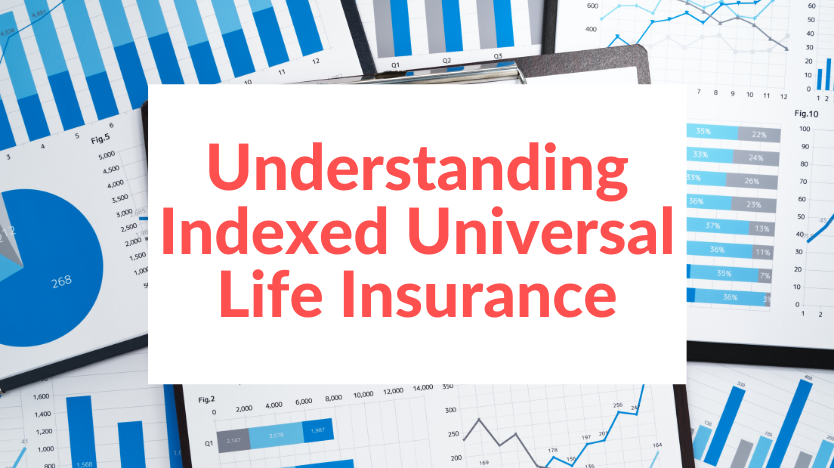If you’re looking for a unique way to protect your loved ones while growing your savings, you might have come across the term indexed universal life. This type of life insurance policy has become increasingly popular for its blend of insurance protection and investment potential. But what exactly is indexed universal life insurance, and how does it work? Let’s break it down in simple terms.
What Is Indexed Universal Life Insurance?
Indexed universal life (IUL) insurance is a type of permanent life insurance that offers death benefit protection and allows for cash value accumulation. Unlike traditional life insurance policies, IUL policies tie the growth of their cash value to a stock market index, such as the S&P 500. This means that while your policy’s cash value has the potential to grow based on market performance, it’s also protected from market downturns by a guaranteed minimum interest rate.
Key Features of Indexed Universal Life
- Death Benefit Protection: Provides financial security for your beneficiaries in case of your passing.
- Cash Value Growth: Offers the opportunity for your policy’s cash value to grow, linked to a market index.
- Flexible Premiums: You can adjust your premium payments to fit your budget and financial goals.
- Policy Loans and Withdrawals: Access your policy’s cash value if needed, often without tax penalties.
- Minimum Guaranteed Rate: Ensures your cash value won’t lose money, even if the market performs poorly.
How Does Indexed Universal Life Work?
The cash value component of an indexed universal life policy is what sets it apart from other life insurance options. Part of your premium goes toward maintaining the death benefit, while the rest is allocated to a cash value account. This account grows based on the performance of a stock market index.
Indexed Growth Potential
An IUL policy isn’t directly invested in the stock market. Instead, the insurance company credits your cash value with interest based on the performance of a chosen index. Here’s how it works:
- Cap Rate: The maximum percentage of growth your cash value can earn.
- Participation Rate: The portion of the index’s growth that your policy will capture.
- Floor Rate: The minimum interest rate your cash value will earn, even if the market goes down (usually 0%).
For instance, if your policy has a cap rate of 10%, a participation rate of 80%, and the chosen index increases by 12%, your cash value would be credited with 9.6% growth (80% of 12%). If the index drops, your cash value won’t decrease because of the floor rate, protecting you from losses.
Benefits of Indexed Universal Life Insurance
Flexible Premiums
One of the standout features of indexed universal life insurance is its flexible premium structure. You can choose how much you want to pay within a certain range, giving you control over your budget. If you experience financial hardship, you can reduce your payments, or if you come into extra cash, you can contribute more to build up the policy’s cash value faster.
Growth with Market Upside
By linking the cash value to a market index, IUL policies offer the potential for higher returns compared to traditional whole life insurance. If the market does well, your policy’s cash value can grow significantly. This market-linked approach provides an appealing way to build wealth over time, though it’s important to remember that your earnings are subject to the cap rate.
Safety Net with the Floor Rate
Unlike direct stock market investments, your cash value in an indexed universal life policy comes with a safety net. The floor rate ensures that, even during market downturns, your cash value won’t drop below zero due to market losses. This feature makes IUL policies an attractive option for people looking for growth potential without the risk of losing their principal investment.
Tax Advantages
IUL insurance policies offer tax-deferred growth on the cash value. This means that you won’t have to pay taxes on the growth until you withdraw the funds. In addition, many policyholders can access the cash value through policy loans, which are generally not considered taxable income.
Potential Drawbacks to Consider
While indexed universal life insurance has plenty of advantages, it’s not perfect for everyone. Here are some of the potential drawbacks:
Complexity
IUL policies are more complex than other life insurance types, such as term or whole life insurance. Understanding how the cap rate, participation rate, and floor rate interact can be confusing for some. It’s essential to read the fine print and possibly consult with a financial advisor to ensure you know what you’re getting into.
Fees and Charges
With IUL policies, there can be various fees that eat into your cash value, such as:
- Administrative Fees: Cover the costs of managing your policy.
- Mortality Charges: Pay for the insurance component of your policy.
- Surrender Charges: Applied if you cancel your policy early.
These fees can sometimes offset the growth in your cash value, so it’s essential to understand the cost structure before committing.
Who Should Consider Indexed Universal Life Insurance?
An indexed universal life policy might be a good fit for:
- People Looking for Lifelong Coverage: IUL is a type of permanent life insurance, so your coverage will last as long as you pay the premiums.
- Those Seeking Investment Opportunities: If you want life insurance that also offers the potential for cash value growth linked to a market index, IUL can be a solid option.
- Individuals Planning for Retirement: Because of the tax-deferred growth and access to cash value, an IUL policy can be part of a retirement strategy.
- People with Flexible Income: The ability to adjust premiums makes IUL ideal for those whose income may fluctuate.
Indexed Universal Life vs. Other Life Insurance Types
How does indexed universal life stack up against other life insurance options? Let’s take a look at how IUL compares to term and whole life insurance in the table below:
| Feature | Indexed Universal Life (IUL) | Term Life Insurance | Whole Life Insurance |
|---|---|---|---|
| Coverage Duration | Permanent | Temporary (10-30 years) | Permanent |
| Cash Value | Yes (linked to index) | No | Yes (fixed rate) |
| Premium Flexibility | Flexible | Fixed | Fixed |
| Investment Potential | Moderate to High | None | Low |
| Risk of Loss | Protected by floor rate | None | None |
| Cost | Moderate to High | Low | High |
Common Myths About Indexed Universal Life Insurance
Myth 1: IUL Policies Are Just Like Investing in the Stock Market
While it’s true that the cash value of an indexed universal life policy is linked to the performance of a market index, it’s not the same as directly investing in stocks. Your cash value can grow when the index performs well, but you’re protected by the floor rate when it doesn’t. This unique structure makes IUL a more secure than direct stock investments.
Myth 2: You Need to Be Wealthy to Get an IUL Policy
Some people think that only the wealthy can afford indexed universal life insurance, but that’s not true. Many policies are designed to be accessible to a range of budgets. The ability to adjust premiums makes it possible for individuals with various income levels to consider this type of policy.
Tips for Choosing an Indexed Universal Life Policy
Selecting the right indexed universal life insurance policy can be overwhelming, but here are a few tips to help:
- Understand the Cap and Participation Rates: Be aware of how much of the index’s performance you’ll receive and the maximum amount your cash value can grow.
- Compare Fees: Different insurers may charge varying administrative and mortality fees, affecting your policy’s overall value.
- Work with a Financial Advisor: Consulting with an advisor who understands IUL policies can help you make an informed decision.
Final Thoughts on Indexed Universal Life
Indexed universal life insurance offers a unique blend of death benefit protection and cash value growth tied to the stock market. With its flexible premiums, potential for tax-deferred growth, and built-in safety net, it can be an appealing option for those looking to plan for the future. However, understanding the ins and outs of the policy, including the cap rate, participation rate, and potential fees, is crucial before making a decision. You can determine if an IUL policy fits your financial goals and long-term plans with careful research and guidance.
So, is indexed universal life right for you? It depends on your financial situation, risk tolerance, and life insurance needs. But with the right approach, an IUL policy could be a smart and strategic addition to your financial portfolio.




